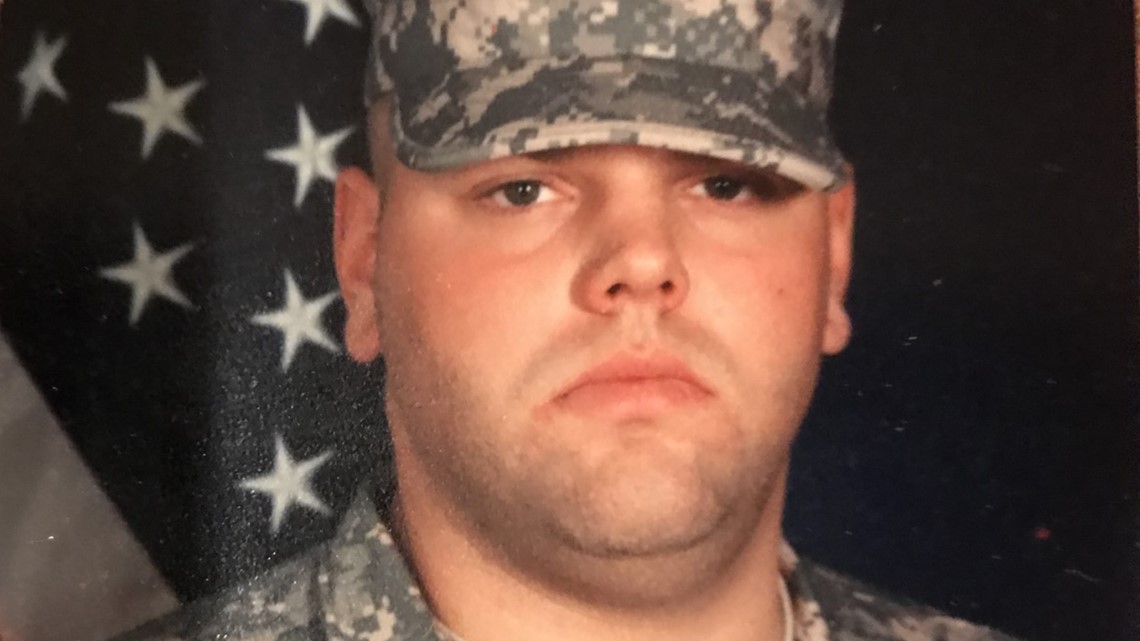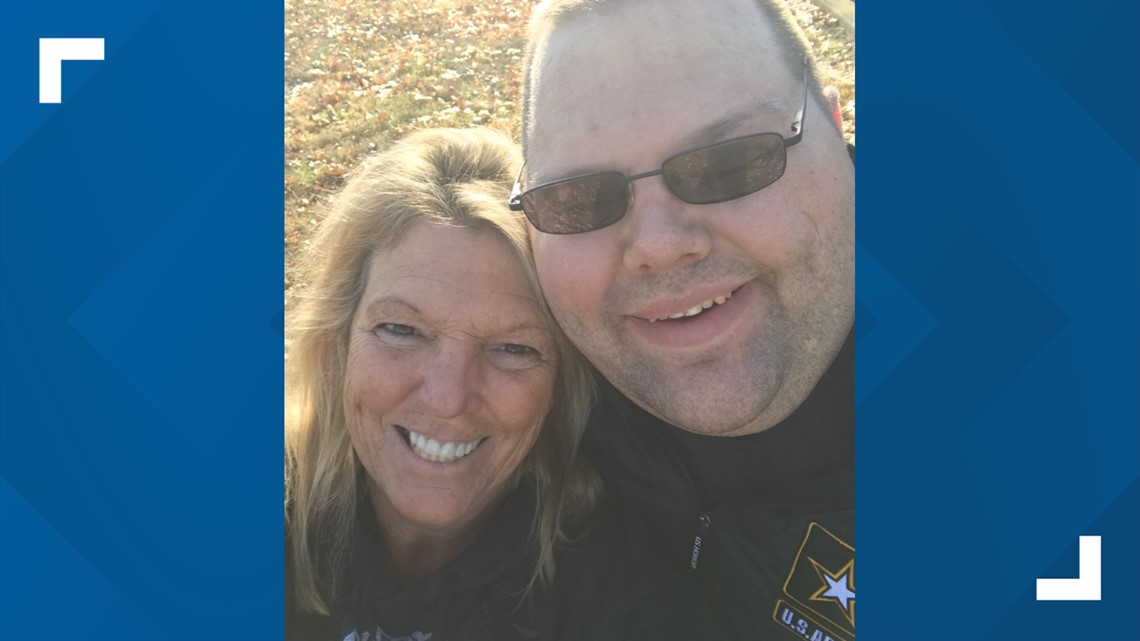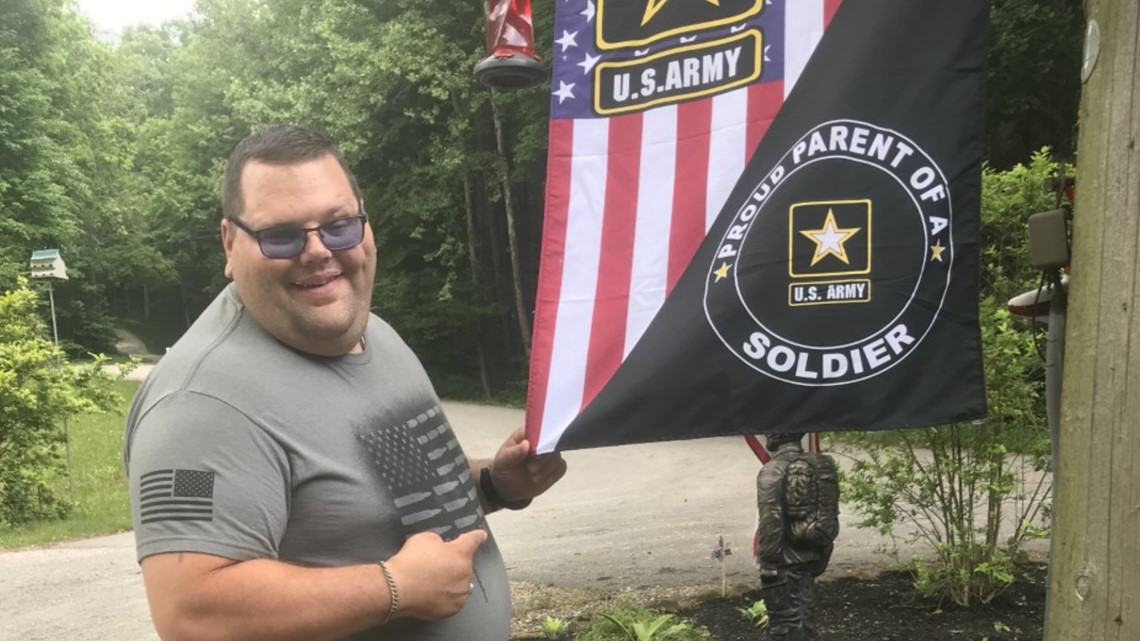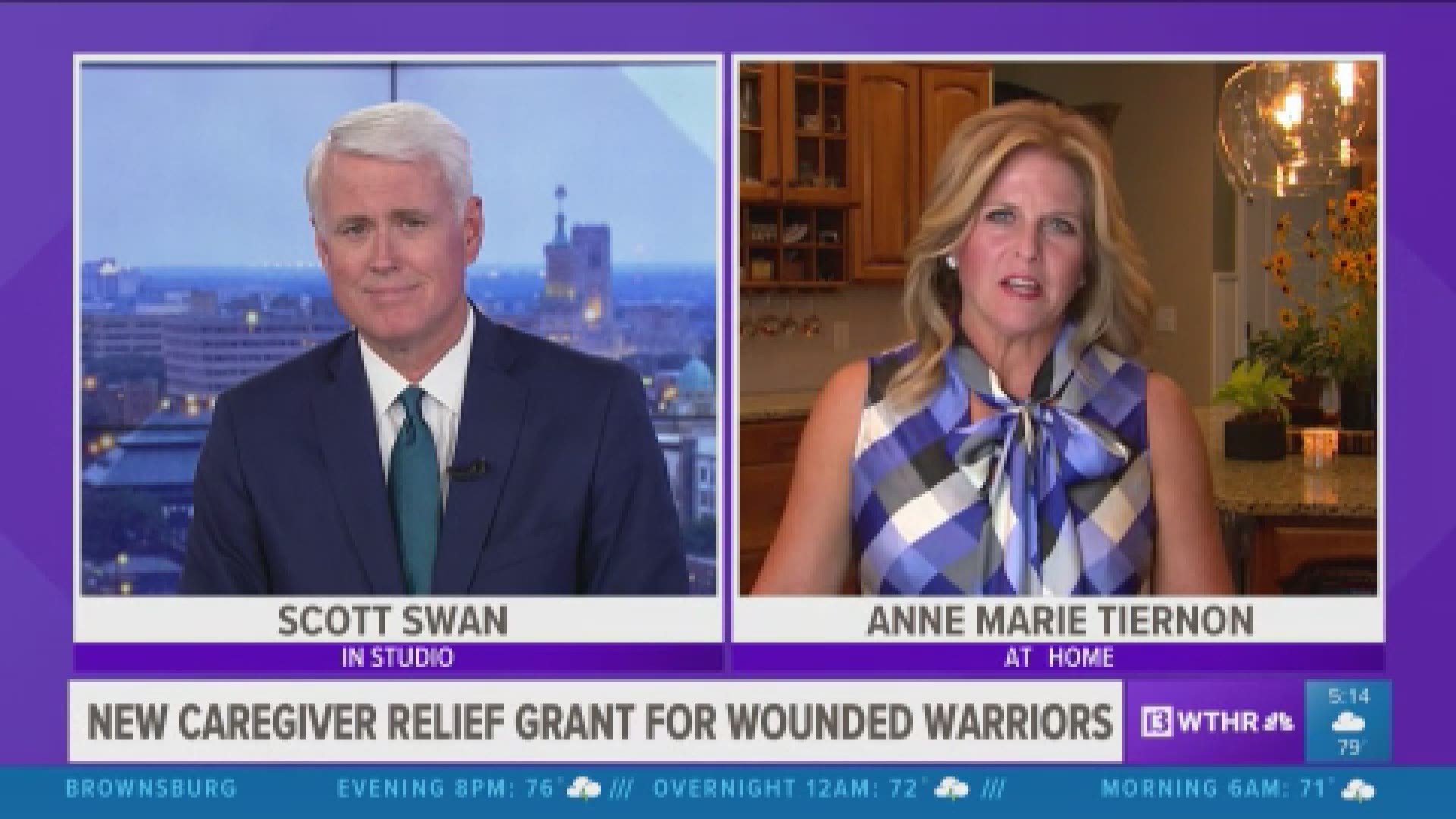BLOOMINGTON, Ind — Before being deployed to Iraq, Austin Fretz gave his mom a gift.
“He put this parachute cord (bracelet) around my wrist in 2007, and I’ve never taken it off,” said Bridget Fretz.
She said it’s how she knew her only child was always with her. She gave him a cell phone to take with him, and whenever they spoke, she said she would often here mortars going off around him.
“He would say those were several football fields away, but they sounded like they were right next to him,” said Bridget. “I was scared to death that I would get a call saying he didn’t make it. Every time my phone rang, I was kinda scared."
Ahead of his second tour, they got matching tattoos. It was Bridget’s first and only.
“I’d do anything for him,” she said.
Austin’s two tours in Iraq totaled three years.
“He was a sniper and grenadier,” said Bridget.


She said she found out 30 days in advance that Austin was coming home and she was so excited to be able to hold her son again.
“The first three months, he was really good. After all the adrenaline went away and people stopped coming by, that’s when I knew something was wrong with him,” said Bridget.
Bridget said her son and best friend had never sworn prior to his deployment. Now he was angry, depressed and began drinking heavily.
“I was afraid I wasn’t going to be alive. He would tell me he was going to kill me and give me explicit details,” said Bridget.
So she called the VA. Austin was diagnosed with a traumatic brain injury (TBI) and post-traumatic stress disorder (PTSD).
“The Austin I sent overseas didn’t come back home to me,” said Bridget.
The brain injury impacted his memory, but there are some things a soldier will never forget.
“A bunch of mortars...they’d blow up, which wasn’t nice because they hurt my memory. The most terrible things in my life, like IED,” said Austin.


Bridget said her son also suffered a car accident due to his heavy drinking from his PTSD and he now requires 24/7 care.
“With Austin’s traumatic brain injury, he has the brain of about 7-year-old child and he’s 36 years old,” said Bridget. “I bathe him, I dress him, I fix his meals, clip his nails, he’s incontinent at night and during the day.
“It’s really, really sad for the last nine years."
Bridget said her son is a miracle. She said doctors advised her to take her son off life support because he would likely “be a vegetable.”
She said her son had to relearn how to do everything, like an infant.
“I’m lucky, I get to raise my baby boy twice,” she said to her son softly as she stroked his hand.
Bridget had to give up her career to take care of her son and they lost their home. In order to help make ends meet, she donated plasma on a regular basis for several years.
“Just because Austin isn’t disfigured or missing a limb, he still needs 24/7 care, which the VA does not recognize that,” Bridget said.
That’s why she lawyered up to fight for caregiver support through the VA, but what she receives isn’t enough.


The Wounded Warrior Project said the pandemic has created an added stress for caregivers across the country. Bridget said the isolation has been especially difficult.
“It’s brought on a depression. A very big depression,” said Bridget.
She’s always had to bring her son with her everywhere, but now because of his compromised immune system, she makes him wait in the car while she runs necessary errands, like grocery shopping.
“I’m always rushing,” said Bridget.
“Many of these veterans have compromised immune systems, so caregivers have, by choice, stopped receiving in-home care service and that’s to protect their wounded warriors. Obviously, that puts an additional demand on them,” said Wounded Warrior Project CEO Michael Linnington.
That’s why the Wounded Warrior Project is investing over $7 million in support for caregivers.
Each enrolled Wounded Warrior family will automatically receive a direct deposit of $3,000 this month “for them to use whatever they want to use it for, whether it’s house cleaning or yard repair,” said Linnington.
Bridget said it’s a relief.
“That is so awesome, because it means I can pay a caregiver and go someplace for a couple nights, just me and my fiancé. We don’t get that, it’s something we haven’t had for nine years,” she said, smiling.
Bridget said a mother's love is unconditional.
Austin said his mom is “awesome” and knowing his mother will always be there from “eyes open to eyes shut” makes him feel good.
The Wounded Warrior Project said it is planning to expand services for caregivers next year and provide more access to mental health care, respite support, and meetings for caregivers to meet one another.

